The Bare Bones of Raf Simons
The Belgian designer knows that all creation must begin with destruction.
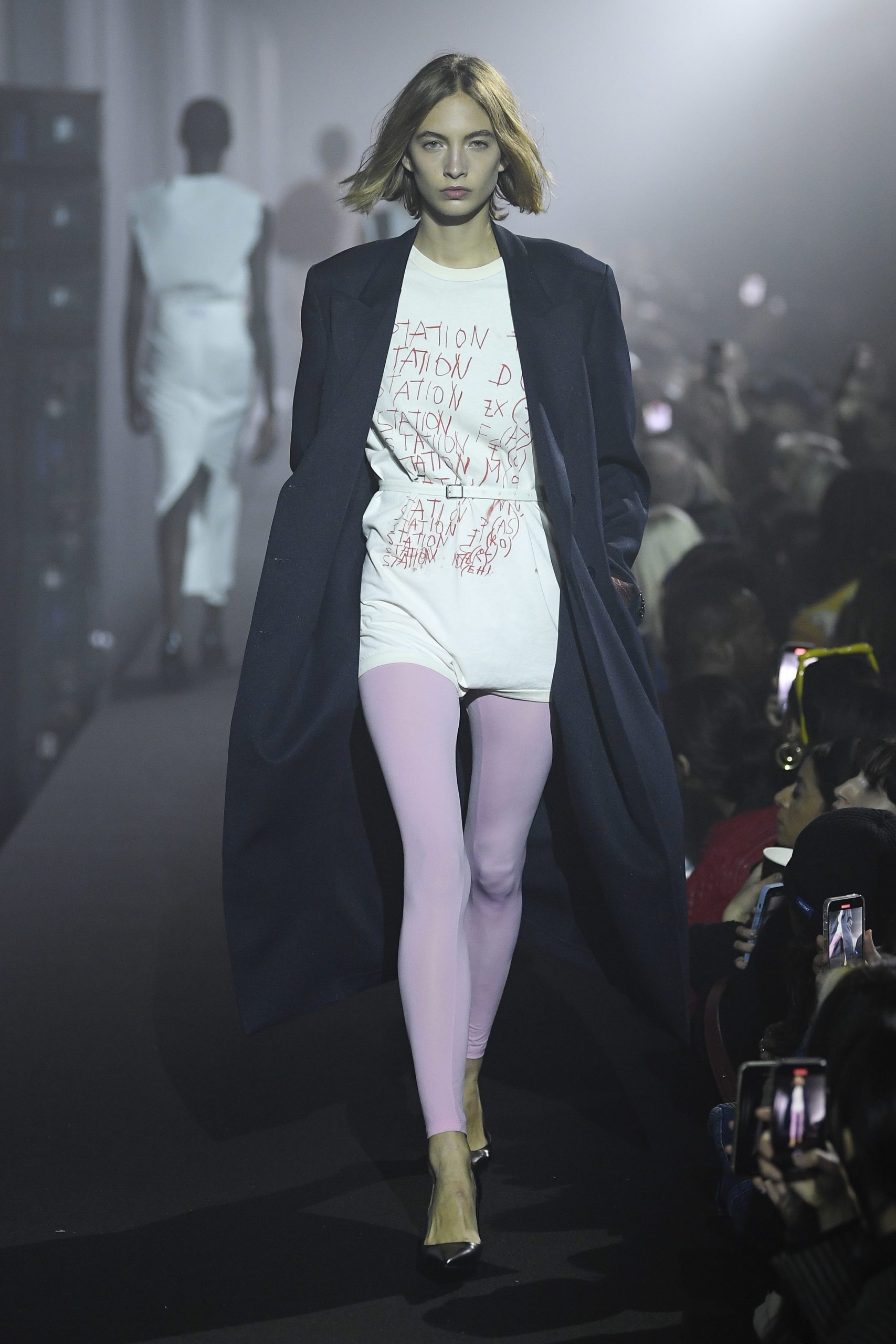
Simplicity and ease were key to the Raf Simons Spring/Summer 23 collection. That’s not to say the showing itself was bare; set in a rave hall, it certainly screamed of energy and dramatic flair. The garments, however, were a perfect juxtaposition to this overbright environment. For Raf Simons creation is an act of rebuilding, and this is him returning to his roots. He has done the destructive work so that he can revamp even bigger and stronger.
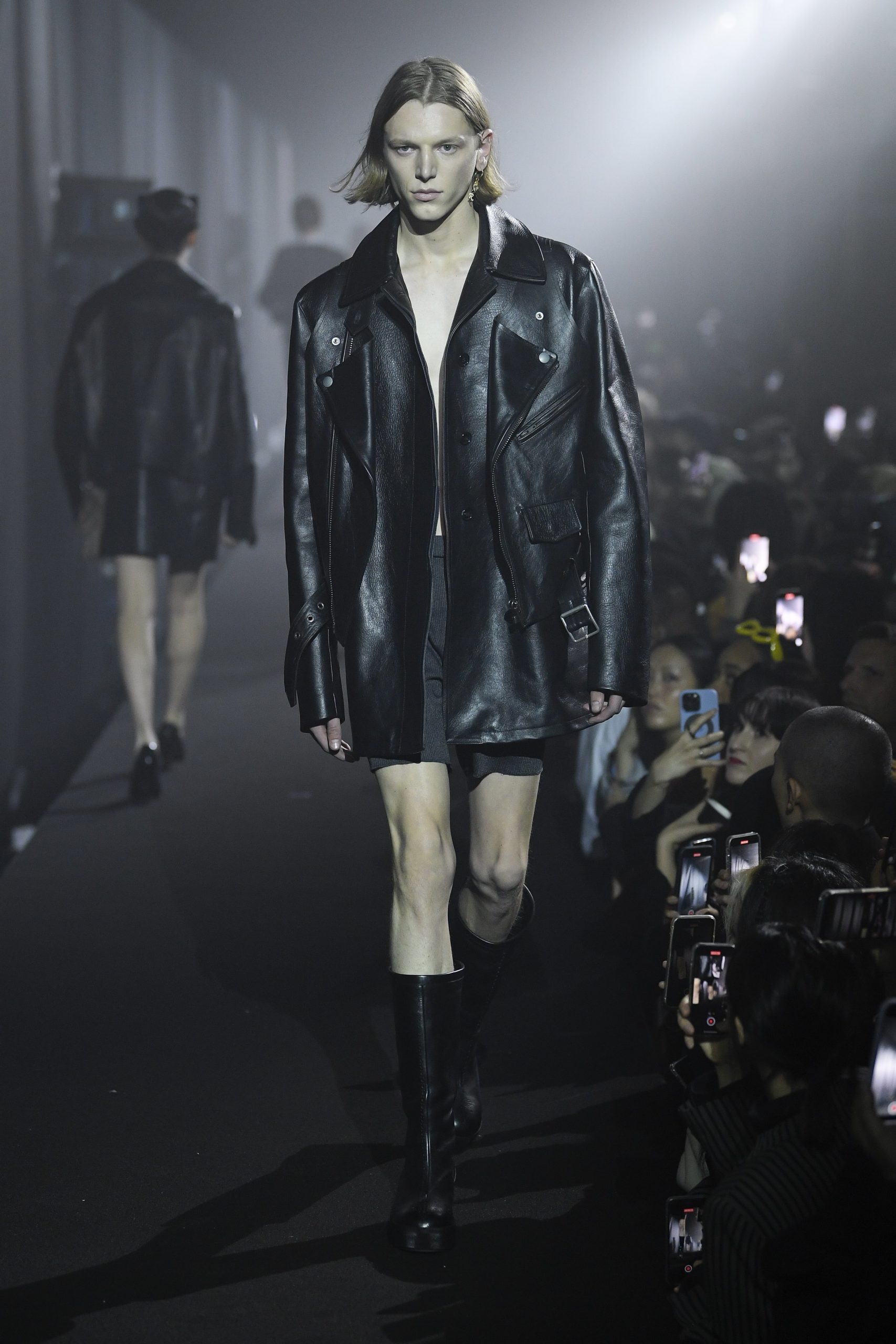
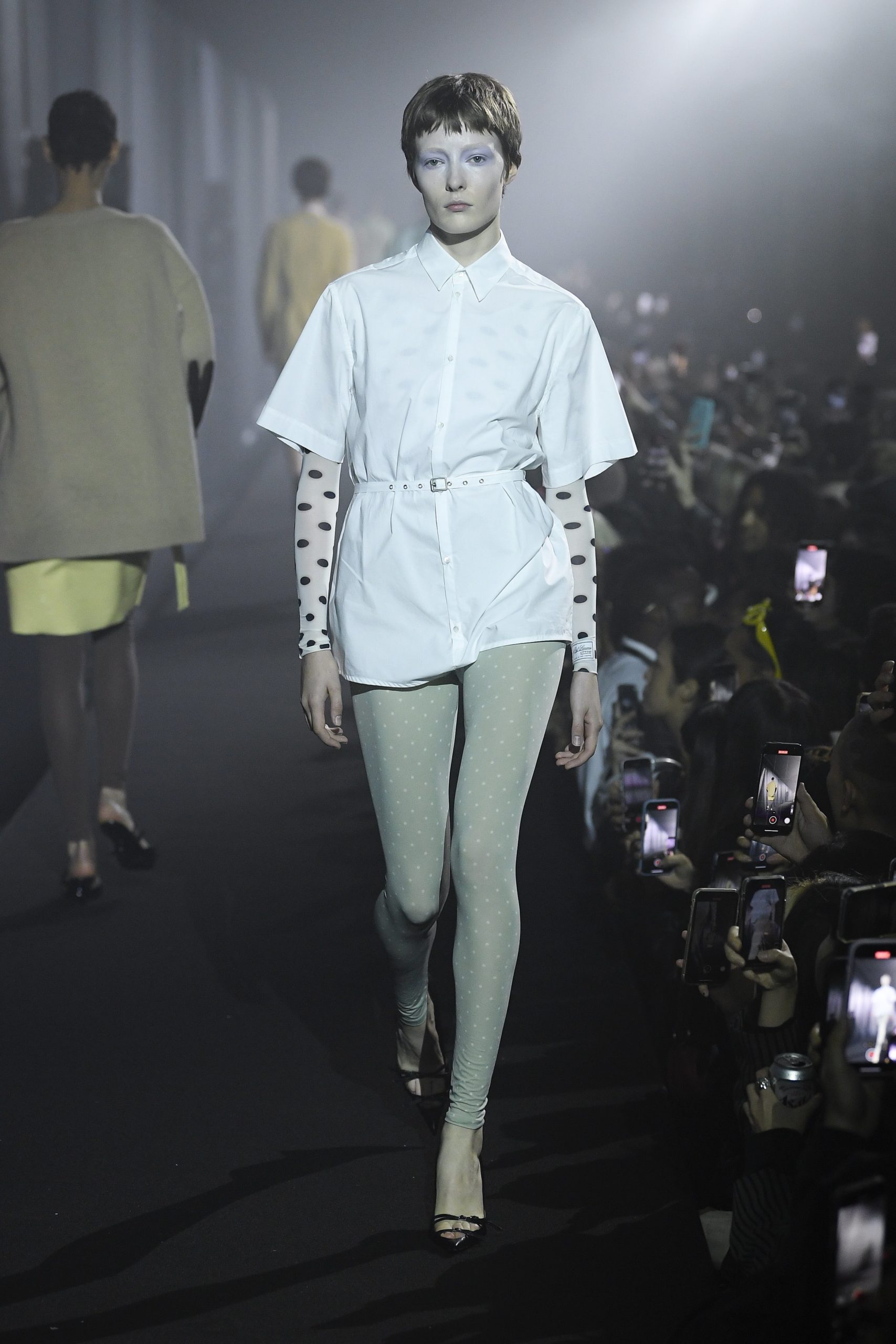
Originally slated as one of the big-name shows of London Fashion Week, the Raf Simons runway presentation was pushed to October in reverence of the Queen’s death. That date change built a deep sense of anticipation for the show, a seemingly unintentional finale to weeks and weeks of fashion. And yet, the show seemed to be the perfect capstone. It embraced the new and the old, taking a back-to-beginnings mindset while never forgetting that Raf Simons innovation. It’s all that a showing can desire to be.
The SS23 collection takes a sparse approach to its coloring, keeping palettes similar for most garments. The majority of looks are built in all black, with a pop of neon underlying to catch the eye. Consider the collection’s black minidress with green-tinted sleeves, or woven black power suit with green stockings. These pops of color, hidden but nevertheless alive, demonstrate how Raf Simons is able to keep his brand identity. While stripping it back, he still has joy, those little hints of ecstasy that hint to a broader vision.
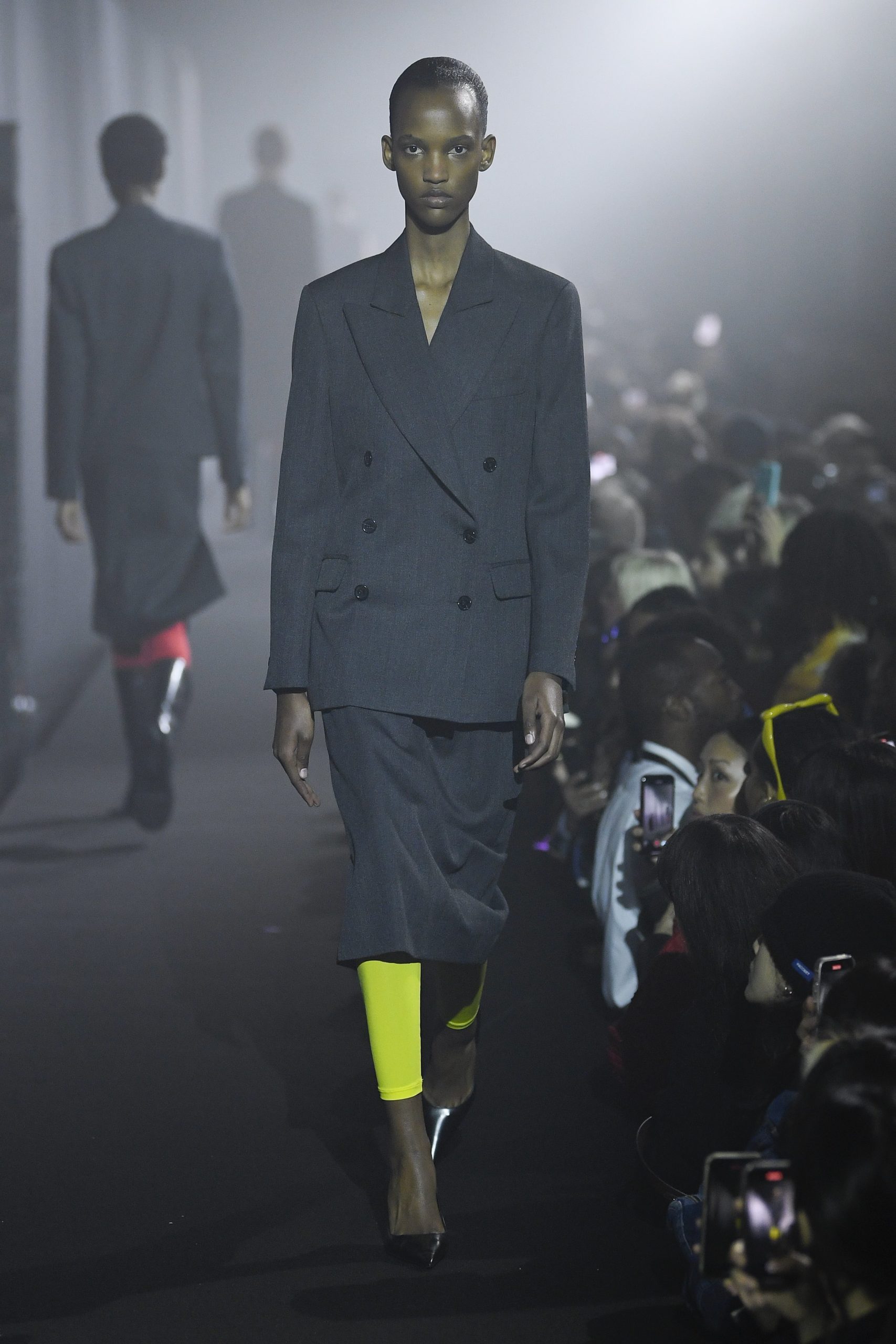
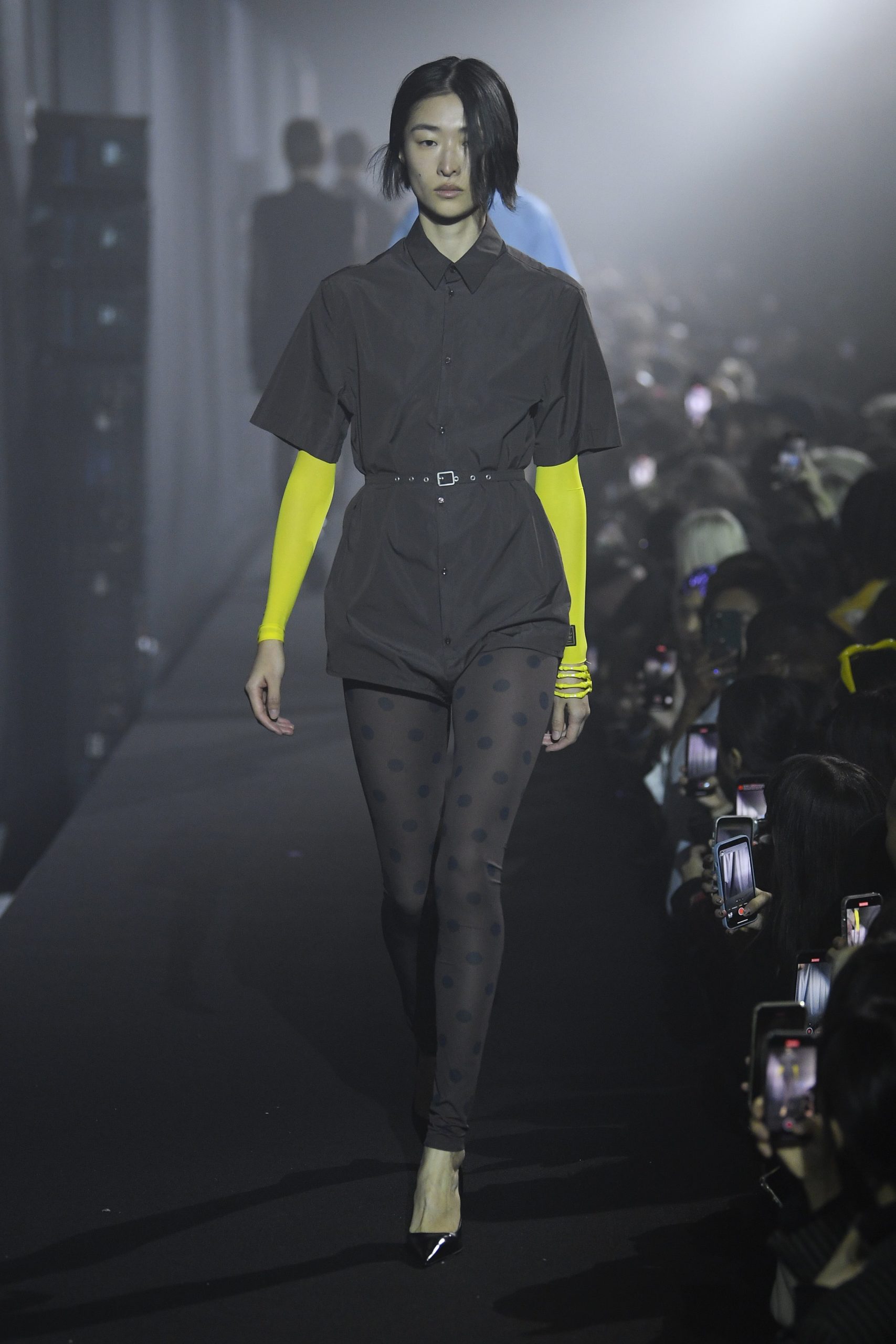
More than anything, the Raf Simons collection is specific and intentional. Every piece of the collection is thoroughly thought out, not only for its own value but for its place within the showing. Tailoring provides a machine-like dexterity for the collection, with each garment perfectly put together to match its additional pieces and the shape of the model’s body. Belts and buckles enclose looks, while slivers of skin shine through the layers of fabric. These are high-class, elegant looks that are buttoned up with skill.
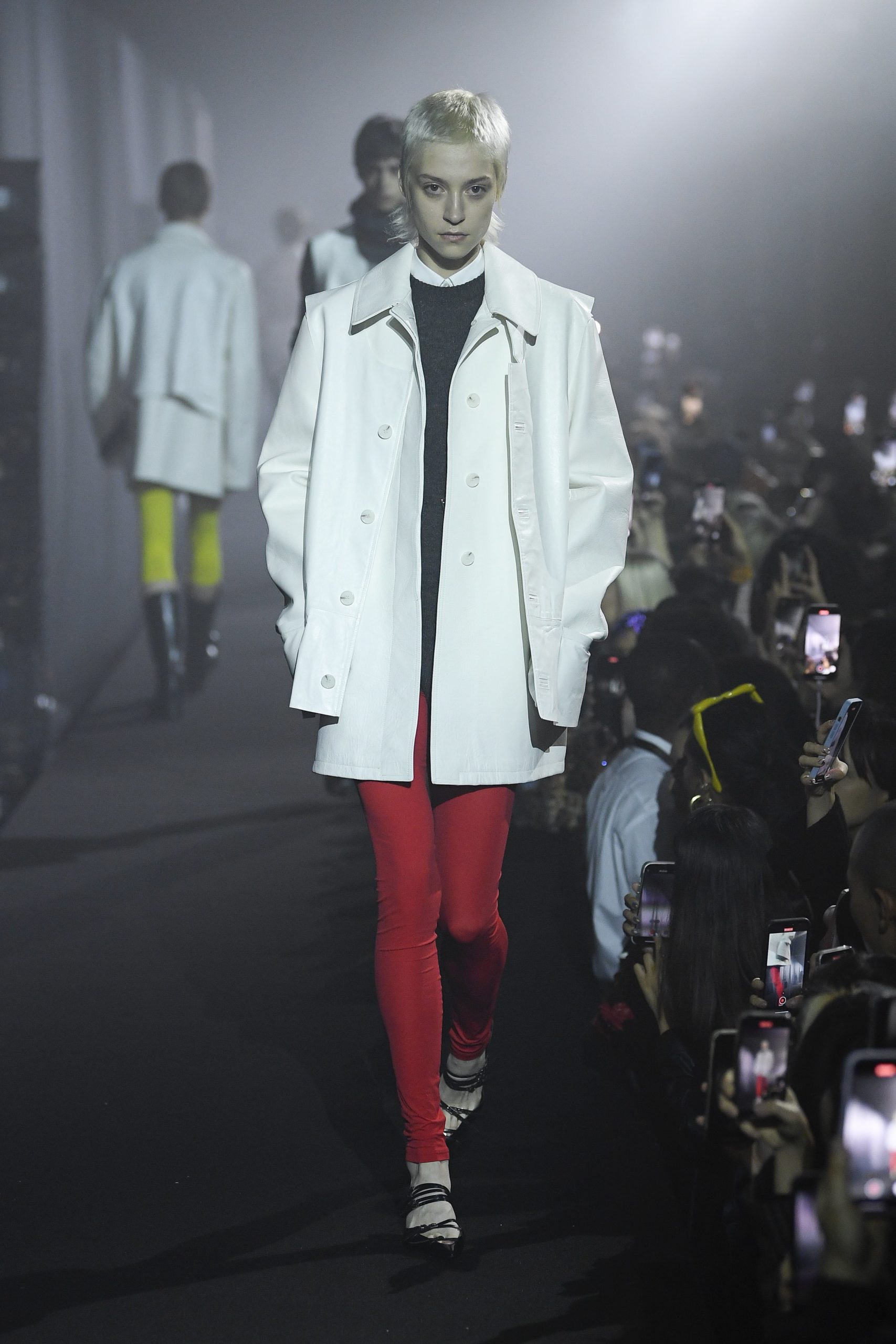
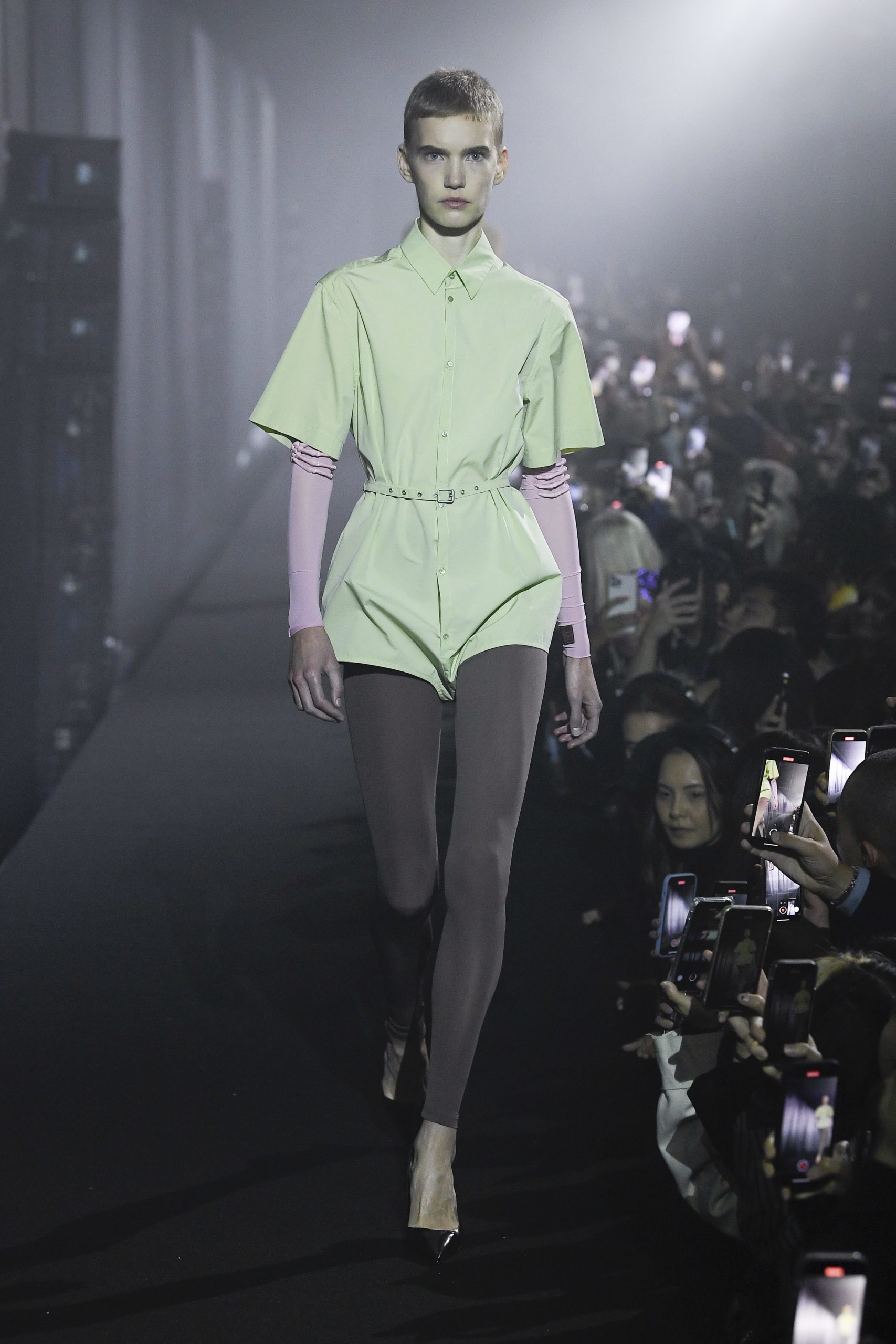
The showing debuts a collaboration with the estate of Philippe Vandenburg, a visual artist who embodied these ideas of creation through destruction. His art spoke to the rejected and renewed, and the cycle that this process can hold. Featured on several of Simons’ garments, Vandenburg’s art is the perfect visual complement to the collection. This visual and ideological cohesion is so rare. Simons may use Vandenburg’s art to espouse some purpose for his collection, while Vandenburg’s estate may use Simon’s collection to embolden his artistic image. That, like all of the pairings and complements of this collection, is a match made in heaven.

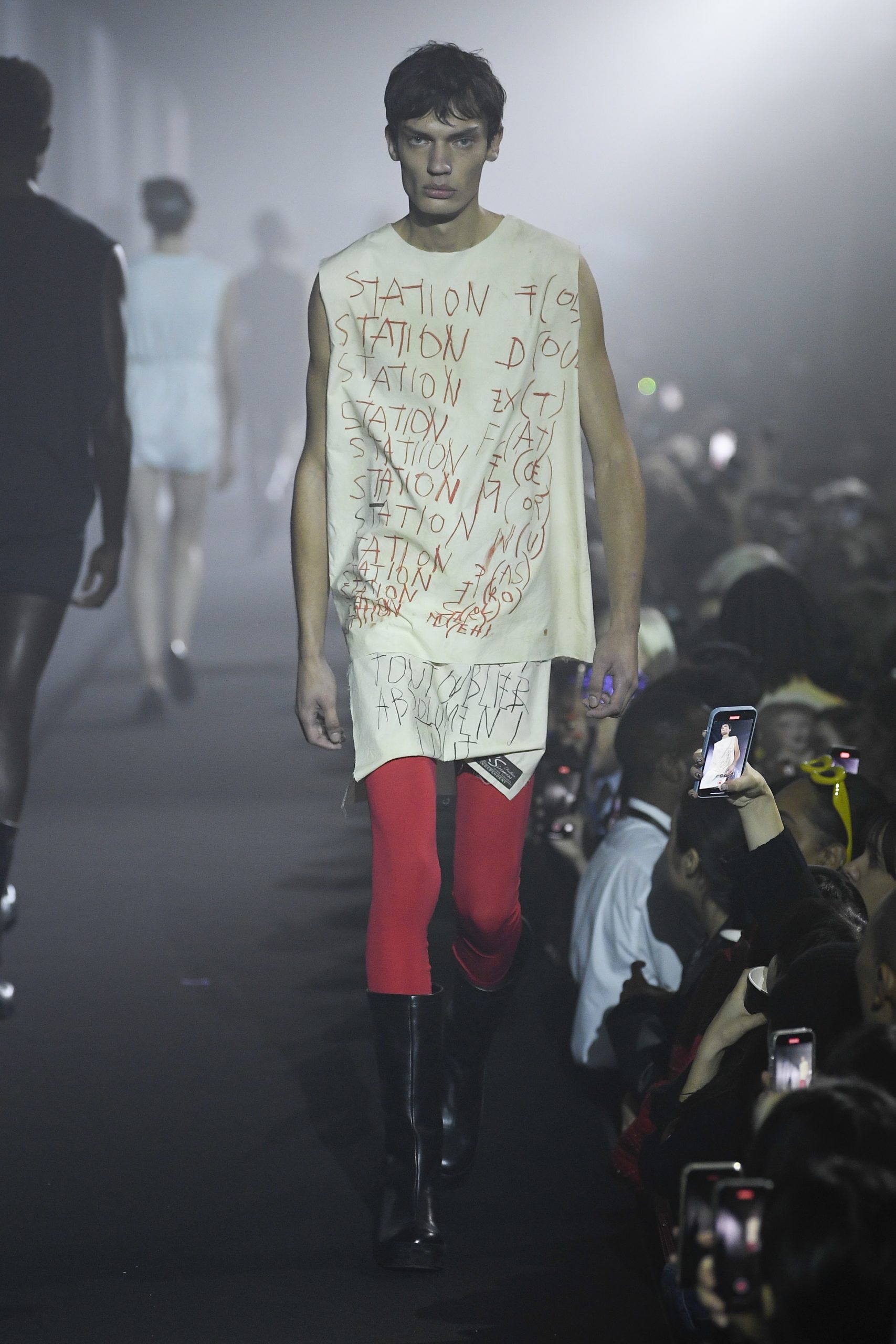
Discover More
